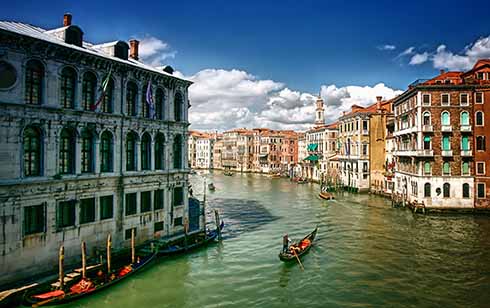 Perhaps humans and the environment would benefit from once again observing a day of rest.
Perhaps humans and the environment would benefit from once again observing a day of rest.
The world has changed dramatically over the past few months. People in India can see the Himalayas for the first time in 30 years, the canals in Venice now run crystal clear, wild goats reclaim towns in Wales, deer roam the suburbs of Osaka and wild boar stroll through Barcelona.
With the streets free of vehicles and people staying indoors nature is making a rapid comeback. What can we learn from our extended period of isolation and how can we be better because of it?
COMPLEX ENVIRONMENT
The environment is a complex and contradictory system. It is at times fragile and irreparable and in other ways it’s resilient and unbreakable.
Through human activity species extinction is occurring 1000 faster than due to natural events alone. It’s predicted that in the next 20 years another million species will cease to exist. Pollution from human endeavour has been recorded in every location imaginable. Plastics choke living creatures and vast swathes of our oceans. Since the beginning of the industrial age carbon dioxide concentrations have risen by 47%.
Living as we do comes at an extraordinary cost to the environment.
The COVID-19 pandemic has caused an immediate and, to this point, lasting pause to our normal lives. Across the world factories are closed or are working at minimal levels, travel has all but stopped and ‘we’ are locked down in our homes. Without humans behaving as we normally would we are seeing the ability of the environment to heal.
SIGNIFICANT EFFECTS
Our actions and at times our inaction have significant impact on the world. Everything we do costs the environment in some way and therefore we need to be prudent and discerning in the way we live our lives. The pandemic has forced us to pause and in doing so find new ways to continue. During this time businesses and different groups in society are creatively exploring new opportunities.
We are finding that some things are actually done more efficiently in virtual constructs. Meetings are often more focused, productive and efficient via video-conferencing. It’s likely that flexible workplace arrangements for many sectors will be a positive and affirming change for both employers and their staff. The pandemic has highlighted the trust required for people to work together collaboratively and in doing so have removed antiquated, yet lingering, visions of leadership. We are seeing the benefits of greater trust and autonomy in the relationships we have within our different networks.
COMMUNITY PROTECTION
At present our focus has been on protecting our communities from a disease that exacts a terrible toll on the venerable and elderly and finding ways of continuing to live and work under the restrictions in place. As we move towards overcoming COVID19 we shift our focus to the future. We are seeing the world around us does not need our intervention and exploitation.
In Genesis we see this encapsulated in creation and God’s instruction to, ‘Be fruitful and increase in number; fill the earth and subdue it. Rule over the fish in the sea and the birds in the sky and over every living creature that moves on the ground.’ We have certainly achieved this commandment. But in recent times our way of life has destroyed the world that sustains us. The pandemic and restrictions have forced us to pause our normal way of life and has offer us a reason and the chance to bring about change.
RECONNECTED WITH THE ENVIRONMENT
During our daily walks that have been allowed during the restrictions, we have reconnected with our environment. We have seen the beauty and life that surrounds us. We notice the weather, our neighbours, plants and animals. We are experiencing life in a new and personal way. We have been gifted the blessing of connection.
As we see the restrictions ease over the coming weeks and months let us hold onto what we have learned during this time.
Let us hold on to the business practices that we have found to be liberating and productive. On an individual level we should reflect on our ‘old’ lives and the endless activity and obligation fills our days to the point of being overwhelmed.
DAY OF REST
In the not too distant past we honoured the ancient practice of the Sabbath.
Perhaps what we can take away from this experience is including a day of rest into our weekly cycle. A day to strengthen family bonds, enjoy our homes, ‘be’ in our local environment and relax without guilt. The Sabbath is in fact a day of producing. Through creativity, contemplation and connection we build a new world.
A day of rest each week will not only change our lives personally but the relationship we have with environment would lead to better and more considered choices.
Could a day of rest, contemplation and connection satisfactorily replace our ‘old’ lives of consumption and individualism?
The Sabbath may realign our existence as a species. Might we be able we honour the commandment to be stewards and we may even become like all other creatures by consuming and producing in equal measure?
Perhaps we can become the ‘lord of all animals’ in a way that is responsible and honours the trust bestowed on us by the Creator because of what we learn during this time of trial.
Brendan Nicholls is Liturgy Coordinator at St Ignatius’ College, Geelong.
Image: Venice canal – depositphotos.com. The lack of tourists and boats has resulted in dolphins and birdlife returning to the canals.